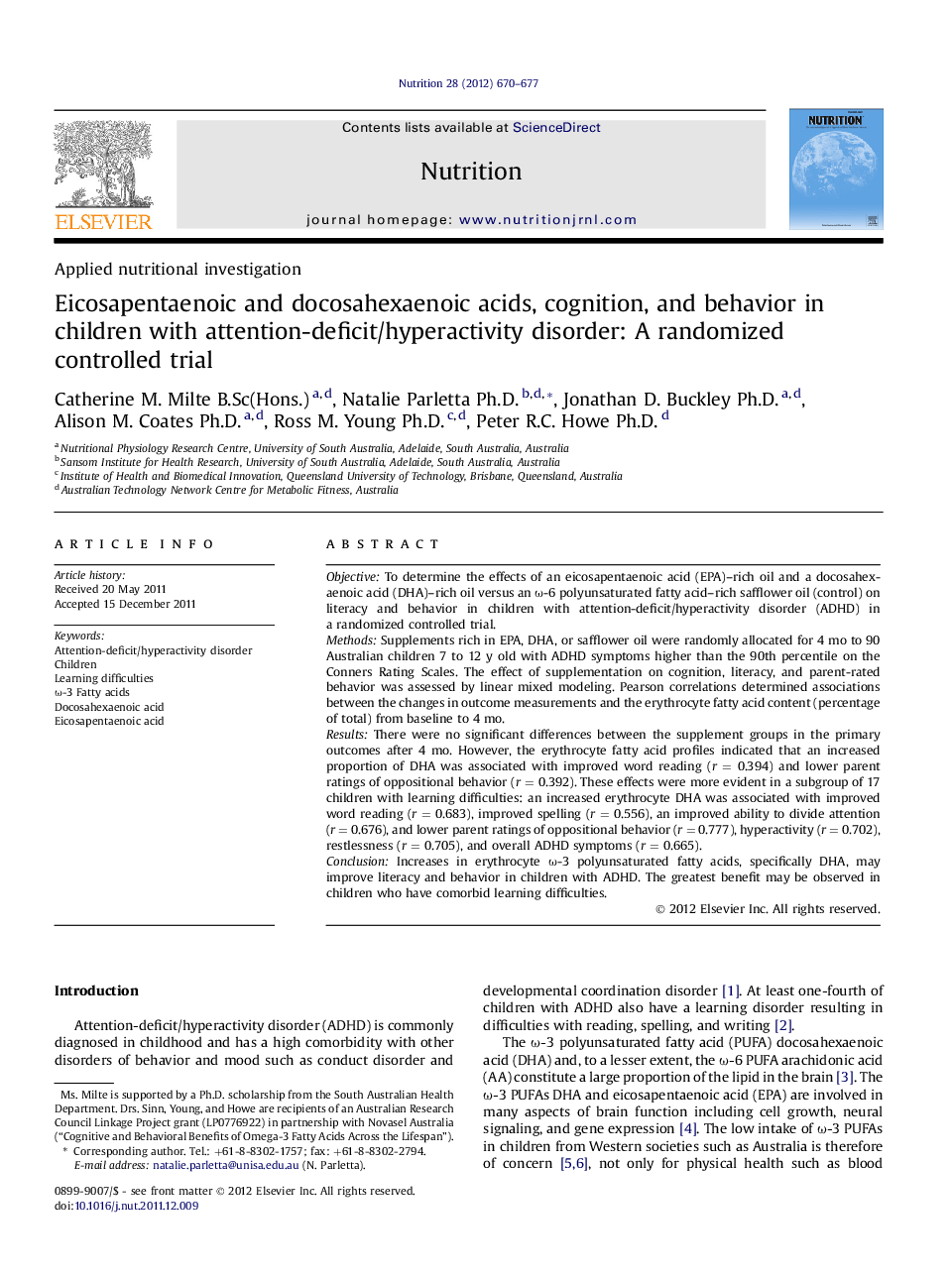| Article ID | Journal | Published Year | Pages | File Type |
|---|---|---|---|---|
| 6090386 | Nutrition | 2012 | 8 Pages |
ObjectiveTo determine the effects of an eicosapentaenoic acid (EPA)-rich oil and a docosahexaenoic acid (DHA)-rich oil versus an Ï-6 polyunsaturated fatty acid-rich safflower oil (control) on literacy and behavior in children with attention-deficit/hyperactivity disorder (ADHD) in a randomized controlled trial.MethodsSupplements rich in EPA, DHA, or safflower oil were randomly allocated for 4 mo to 90 Australian children 7 to 12 y old with ADHD symptoms higher than the 90th percentile on the Conners Rating Scales. The effect of supplementation on cognition, literacy, and parent-rated behavior was assessed by linear mixed modeling. Pearson correlations determined associations between the changes in outcome measurements and the erythrocyte fatty acid content (percentage of total) from baseline to 4 mo.ResultsThere were no significant differences between the supplement groups in the primary outcomes after 4 mo. However, the erythrocyte fatty acid profiles indicated that an increased proportion of DHA was associated with improved word reading (r = 0.394) and lower parent ratings of oppositional behavior (r = 0.392). These effects were more evident in a subgroup of 17 children with learning difficulties: an increased erythrocyte DHA was associated with improved word reading (r = 0.683), improved spelling (r = 0.556), an improved ability to divide attention (r = 0.676), and lower parent ratings of oppositional behavior (r = 0.777), hyperactivity (r = 0.702), restlessness (r = 0.705), and overall ADHD symptoms (r = 0.665).ConclusionIncreases in erythrocyte Ï-3 polyunsaturated fatty acids, specifically DHA, may improve literacy and behavior in children with ADHD. The greatest benefit may be observed in children who have comorbid learning difficulties.
